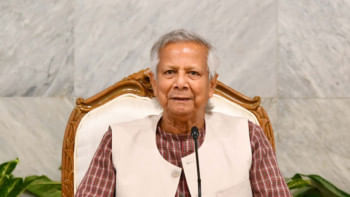The shift of ‘soft power’

Over the past three months, I have lost many nights of sleep, abandoned my favourite political TV programmes, and ignored household chores. No, I am not writing my memoirs—I have been virtually glued to the TV watching a Turkish odyssey on Netflix: "Resurrection: Ertugrul". The epic traces the arduous and adventurous life of a tribal chief, Ertugrul, father of Osman, the founder of the Ottoman Empire. Based on historical facts, the series focuses not just on Ertugrul, but several traditional beliefs and customs in the backdrop of 13th-century Turkey. My interest in the drama was sparked by a friend's comment that it touched upon the life of the famous Sufi, Ibn al Arabi. Of late, I have developed an interest in Sufism and I started watching Ertugrul hoping that it would provide some historical facts about the Sufi saint. The series does depict various facets of Arabi's life and teachings. As a matter of fact, according to the drama, Arabi plays an important role in shaping Ertugrul's character by guiding him through difficult times.
What started as an interest in Sufism turned into an obsession about the warrior hero. I was fascinated by Ertugrul's courage, prowess and ability to overthrow his many enemies: the crusading Knights Templar, the marauding Mongols, and the treacherous Seljuk viceroys, not to mention the many conspirators in his own camp. In addition, the show highlights his spiritual evolution from a tribal chieftain to the ruler of the village of Sogut.
I have been wondering why the epic crept into my consciousness and held me captive through more than 400 episodes. As a liberal Muslim pained by the ad hominem attacks on my religion, I have been groping for role models from Islam's past. Hence, watching a well-crafted, beautifully scored, aesthetically pleasing drama (except for the fighting scenes which I fast forwarded) that centres on a Muslim hero served as a catharsis. Although I do not personally believe in the concept of the unity of the ummah (global Muslim community), Ertugrul helped me understand why the narrative has captured the imagination of so many Muslims. And not just Muslims, an estimated 500 million people across the globe have watched Ertugrul and the number keeps increasing each day. I believe that a primary reason for its popularity is that it highlights universal humane traits—treating friend and foe with honour and chivalry, humility and modesty in the face of glittering wealth and power, respect for family, fighting for justice. For example, in one moving scene, the hero, after an important conquest, kneels in front of the throne and reminds himself that the victory belongs to "Allah" and man is only a conduit through which He spreads equity and justice. This total "surrender to the divine will" is a theme that recurs each time Ertugrul is faced with a crisis or achieves a victory against an enemy.
My rather expansive preamble about Ertugrul might create the impression that this piece is only about the Turkish odyssey. But there is a larger issue that I wish to address. In the recent past, there has been a marked shift in global popular culture in which America's soft-power dominance is facing challenges from art forms originating in the east. We find ample evidence of this in the impact of not just Turkish serials but also Bollywood films and Korean pop music. I remember the times of our youthful zeal for Hollywood blockbusters and American television. Elvis Presley and the Beatles were worshipped by the developing world elite that wanted to "modernise". Hence, they reinvented themselves by mimicking the codes and mores of Western society—the ubiquitous blue denim jeans, the "bob" hairstyles, and the American twang in their English accent.
In the last two decades, Hindi movies have tried to promote a surreal and glamorous lifestyle imitating cosmopolitan customs and styles. Thus the net was cast wide to include the affluent South Asian diaspora and Middle Eastern fans. The appeal is partly due to the fact that the heroes and heroines seem more akin to their culture and traditions, not to mention the popular song and dance sequences. For example, Shah Rukh Khan, the most popular Bollywood hero, navigates through roles where he is part of a wealthy diaspora but is spiritually and emotionally guided by traditional Indian values, and is also at ease dancing to a beautifully composed Bollywood number.
Of late, the divisive era of Narendra Modi has somewhat changed the international, cosmopolitan character of Hindi film narratives. Muslims are now portrayed as kohl-eyed rulers lusting for Hindu women or the mafia don exploiting innocent citizens or the terrorist trying to blow up the masses. Perhaps this is a reason for the allure of Turkish dizis (as the Turks call their TV serials) where the heroes uphold the best of Islamic values and instil a sense of pride among Muslim youth worldwide. Also, the fact that the productions are of such high professional quality has helped them make inroads globally, even in Latin America—a region not known for its Muslim population. Hence, viewers across the world are beginning to understand that at the core all human beings have the same basic aspirations, hopes and fears, irrespective of their nationality, faith and race.
The truth is that America dominated the entertainment industry because it projected a dream of limitless opportunities and freedom. The growing socio-economic inequity has exposed the hollowness of this message. Audiences are groping for authenticity, and the cultural products from the East provide a welcome alternative. However, despite the shift in soft power, we cannot ignore the "hard" kind. We watch Ertugrul and Bollywood movies on Netflix or Amazon or YouTube. These Western corporations still control the choice of content. Until emerging platforms take charge of the channels, part of this hegemony will remain in place. But for now, let us revel in the fact that global audiences are being exposed to some positive aspects of the values and traditions of the East.
Milia Ali is a Rabindra Sangeet exponent and a former employee of the World Bank.

 For all latest news, follow The Daily Star's Google News channel.
For all latest news, follow The Daily Star's Google News channel. 



Comments